What is Acne?
Acne is a fairly common disorder characterized by inflammation of the pilosebaceous glands.
Typical of puberty, acne can still occur at any age, as it can be triggered by different types of factors, both internal and external.

Causes
The underlying causes of the onset of acne can be different and, often, can simultaneously contribute to the onset of the disorder.
More specifically, these causes consist of:
- Hormonal imbalances: during the menstrual cycle, especially before it, in pregnancy and in menopause, hormonal concentrations can vary a lot. These variations can lead to an increase in sebum production, favoring the appearance of acne. In particular, before the period, acne can worsen due to a physiological increase in progesterone.
- Bacterial causes: acne can be favored by the uncontrolled proliferation of Propionibacterium acnes, a bacteria that - in physiological conditions - lives normally on the skin. However, in the event of a blockage of the skin pores, this bacteria is able to multiply and lead to the appearance of acne and inflammation.
- Stress: all anxieties and tensions create an overwork of the adrenal glands which produce more hormones (cortisol, male hormones in small quantities). The increase in hormone levels in the body can stimulate the sebaceous glands to "work harder", resulting in over-production of sebum and the appearance of acne.
- Genetic factors: as with many other disorders, a certain genetic predisposition and familiarity also appear to be involved in the onset of acne.
- Medicines and cosmetics: Medicines such as cortisone, testosterone or anabolics and cosmetic products such as creams and lanolin or petroleum jelly can worsen the clinical picture of acne.
- Nutrition: in some cases, acne can trigger due to an intolerance to a certain food. The most common food allergens are milk, cheese and wheat flour. It is advisable to eat a lot of fruit and vegetables, maintain a varied diet and balanced, reduce over-seasoned foods that unnecessarily strain the liver and foods rich in fat, which increase the synthesis of hormones deriving from cholesterol, including male ones.
Diagnosis
For the dermatologist, it is easy to recognize a certain form of acne at first glance. On the other hand, it is more problematic to understand its origin and identify the factors that caused it, especially if the sufferer is a woman who has passed the years of adolescence. In this case, in fact, the disorder may depend on poor some endocrine glands (hormone-producing), primarily the adrenals and ovaries, or from ovarian polycystosis (presence of benign and multiple cysts in the ovaries).
The doctor will prescribe specific blood and urine tests in order to evaluate the dosage of the hormones involved. Any cysts are highlighted by a common pelvic ultrasound. If, on the other hand, a food intolerance is suspected, allergenicity tests will be carried out to unmask non-tolerated foods.
Pharmacological therapy
For further information: Medicines to Treat Acne.
The drug therapy of acne can be different depending on various factors, such as the cause that triggered it, its severity, the type of acne the patient suffers from (papulo-comedonic, pustular papule, pustular, etc.) and the patient's own response to therapy.
Here are some of the main active ingredients used in the drug therapy of the different forms of acne. Of course, the drug treatment of acne can and should only be prescribed by the doctor or dermatologist.

Adapalene
Adapalene (Differin®) is a relatively new retinoid for topical use available as a gel in a concentration of 0.1%.
Initially, it was approved in the United States, and then it was approved and successfully used in Italy as well.
Adapalene is indicated for the treatment of moderate acne and causes fewer side effects than other retinoids, such as topical tretinoin (also known as retinoic acid).
Adapalene should be applied in a single layer over the entire acne affected area once a day, preferably in the evening.
Since retinoids are endowed with exfoliating activity, if the use of adapalene causes skin irritation, its frequency of use can be reduced by applying it on alternate evenings.
Adapalene should not be applied to the eyes or too close to the nose and mouth. Furthermore, due to its exfoliating action, sun exposure should be reduced as much as possible while using the product.
Finally, it is good to remember that all retinoids have a teratogenic effect, that is, they can induce malformations to the fetus during pregnancy, so they should not be taken during pregnancy and should be suspended for even two years before programming it, because they tend to accumulate in the tissues and need of this very long time interval in order to be definitively eliminated from the organism.
Benzoyl peroxide
Benzoyl peroxide (Benzac®) belongs to the group of antimicrobials used to fight acne.
It has a double action: disinfectant and purifying, as it frees the follicles from dead cells that prevent sebum from leaking, while at the same time exerting a good antibacterial action.
Benzoyl peroxide is formulated in the form of a gel in concentrations that can vary from 5 to 10%. For fair skin, low concentration products are generally recommended.
Among the most common side effects, we find skin irritation. To reduce the risk of any photosensitization reactions, the product can be applied in the evening. In any case, we do not recommend sun exposure during its use.
Antibiotics
The use of antibiotics is reserved only for very severe forms of acne which - in addition to the appearance of boils and blackheads - are characterized by the formation of abscesses, nodules and cysts.
In these cases, therefore, the doctor may resort to the use of topical antibiotic drugs, including erythromycin (Eryacne gel®) and clindamycin (Dalacin-T®).
Generally, there is a tendency to avoid systemic therapy with antibiotics, in order to avoid the appearance of annoying side effects and the possible onset of resistance to this type of drug.
In any case, it will be the doctor who will evaluate in a strictly individual way which drugs and which therapeutic strategy are best suited to each individual case.
Isotretinonin
Isotretinoin (Roaccutan®) is another retinoid used in the treatment of acne.
It is a very powerful drug indicated above all to counteract cystic acne and acne of psychological origin (stress) that cannot be treated with other drugs.
It prevents the production of sebum, frees the skin of dead cells and fights inflammation.
Isotretinoin should only be used under close medical supervision and after having blood tests done. The drug should be applied to the skin once or twice a day and should not be used during the summer.
Isotretionine has a teratogenic action, in fact it can cross the placenta and cause malformations in the fetus when taken during pregnancy. For this reason, the use of this drug must absolutely not be carried out by pregnant women and in any case its use must be interrupted long before the "beginning of a" possible pregnancy.
Hormone therapy
In women it is also possible to treat acne by resorting to hormonal therapy which is based on the combined use of cyproterone acetate and ethinyl estradiol (Diane®).
However, the results of this type of therapy are seen only after three months of treatment and are not always lasting. In fact, very often, the suspension of drugs brings back the problem.
The active ingredients used in hormonal therapy are also endowed with contraceptive activity; however, they must NOT in any way be used as a contraceptive method.
Other articles on "Acne: Causes and Drugs"
- Acne
- Acne
- Acne: acne medications and treatments
- Acne - Acne treatment drugs
- Acne: natural remedies
- Acne homeopathy
- Diet and acne
- Acne: acne medications and treatments

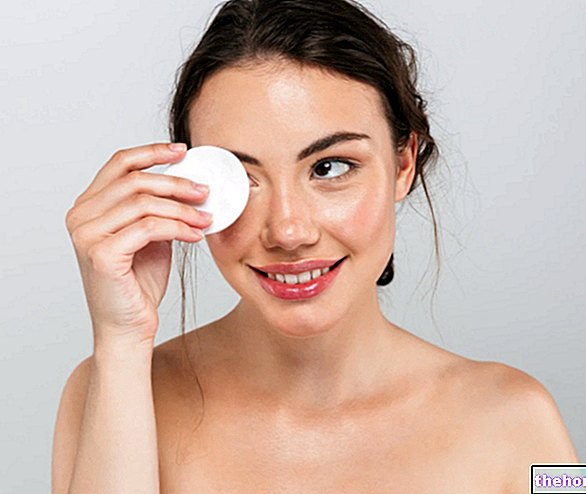
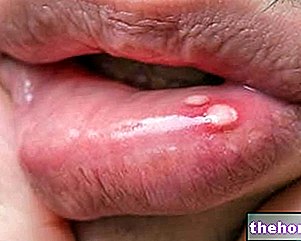

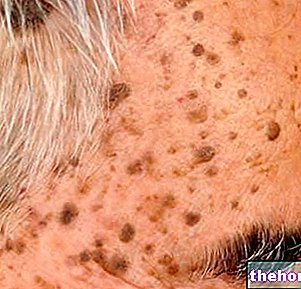
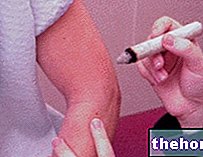
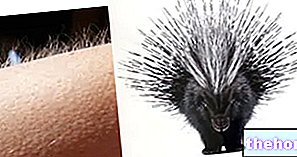









.jpg)











